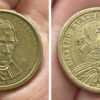T he security fees for which you are charged whenever you purchase an airline ticket may not be as high as originally thought three months ago.
Members of the House of Representatives of the United States unanimously voted on Wednesday, September 17, 2014 to pass legislation on limiting airline passenger security fees imposed by the Transportation Security Administration to charge $5.60 per one-way trip and $11.20 per round trip.
Richard Hudson — a Republican congressman representing his district in North Carolina, as well as the sponsor of H.R. 5462 — said that this bill was necessary because the Transportation Security Administration “had misinterpreted the increase on airline security fees outlined by the 2013 budget agreement by charging more than twice the amount for round trips as for one-way trips”, according to this article written by Cristina Marcos of The Hill.
Depending on what was the definition of a stopover, there was a possibility that you would pay as much as $22.40 in fees for a round trip ticket as an airline passenger. The passage of this bill will potentially save American taxpayers millions of dollars in extra fees.
The following is the full statement released by Roger Dow — who is the president and chief executive officer of the U.S. Travel Association — in response to the passage of the bill:
The bill corrects a fundamental flaw in the most recent adjustment to the TSA fee, which caused some travelers to be charged the fee more than once-in some cases more than $20 extra-if their trip consisted of one or more flight connection. TSA’s activities are obviously vital, but the travel community objected to the agency’s implementation phase of the fee change, and we’re grateful to Transportation Security Subcommittee Chairman Richard Hudson for seeing through this effort to correct it.
However, even with this notable improvement, we still believe the current TSA fee fails to meet a critical criterion for acceptable travel user fees. As designed by Congress, a limited portion of the funds raised go to fund TSA operations, with the rest available for use on unrelated projects. That violates our core principle that user fees must, in their entirety, benefit the users who pay them.
We will continue to work with Congress toward funding mechanisms that maximize efficiency, transparency and value, and delivers to the American people what they expect and deserve: a transportation infrastructure that is the finest in the world, bar none.
The U.S. Travel Association is a national non-profit organization which represents all components of the travel industry that generates $2.1 trillion in economic output and supports 14.9 million jobs. Its mission is to increase travel to and within the United States.
I personally am not sure why the limits were not clearly imposed in the first place three months ago — but I suppose better late than never…
